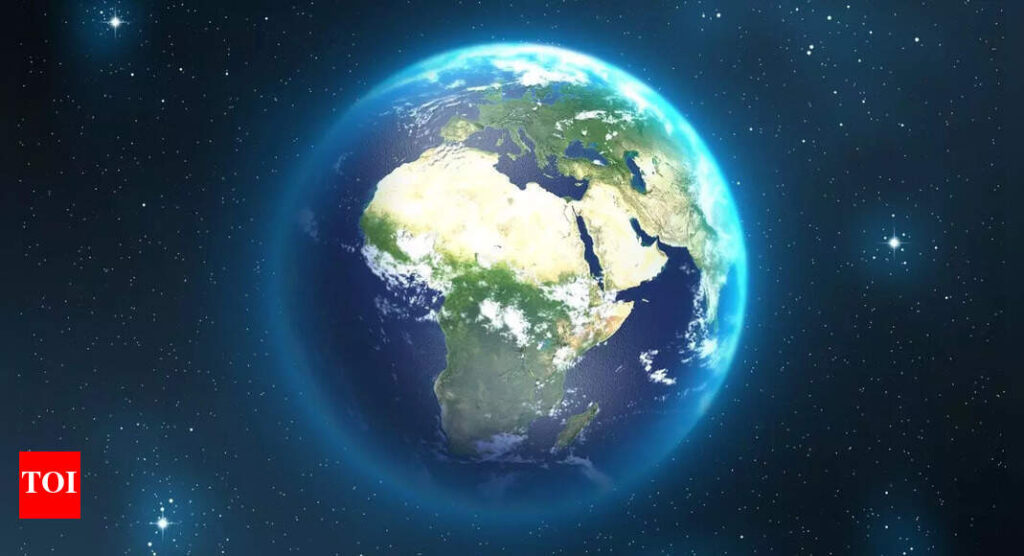A groundbreaking study led by researchers from Toho University, using NASA’s planetary modeling, has predicted a dramatic shift in Earth’s atmosphere that could render life as we know it impossible. According to the research, Earth’s oxygen will disappear in approximately one billion years. This prediction, published in the scientific journal Nature Geoscience, marks a significant development in understanding the planet’s atmospheric evolution. The study ran 400,000 simulations to explore how Earth’s atmosphere might evolve as the sun continues to age and intensify. While this drastic transformation may be far in the future, understanding the mechanisms behind it offers essential insights into planetary science and the future of Earth’s biosphere.
Scientists found Earth’s ‘expiration date’, and it’s sooner than you think
The study titled “The Future Lifespan of Earth’s Oxygenated Atmosphere” outlines a future where oxygen becomes scarce due to natural planetary changes. Led by Kazumi Ozaki, an assistant professor at Toho University in Tokyo, Japan, the researchers examined the factors contributing to atmospheric changes over geological timescales.The role of the SunOne of the core factors leading to oxygen depletion is the sun’s inevitable aging process. As the sun ages, it will gradually become hotter and brighter. This increase in solar radiation will significantly impact Earth’s climate, leading to a series of irreversible changes:
- Water evaporation: The heightened temperatures will cause more rapid evaporation of Earth’s water bodies, increasing atmospheric water vapor levels.
- Temperature rise: Surface temperatures will escalate, pushing the planet towards conditions unsuitable for sustaining life.
- Carbon cycle disruption: The heating will weaken the carbon cycle, a critical process that regulates atmospheric carbon dioxide (CO₂).
- Vegetation decline: As the carbon cycle falters, plant life will begin to die off, halting oxygen production through photosynthesis.
Earth’s atmosphere to lose oxygen
The research revealed that as the carbon cycle deteriorates, the atmosphere will revert to a composition reminiscent of early Earth, characterized by high levels of methane and low oxygen. This transformation mirrors the state before the Great Oxidation Event—a period when Earth’s atmosphere became rich in oxygen due to the proliferation of photosynthetic organisms.Key findings from the simulation
- Rapid deoxygenation: The simulations predict that Earth’s oxygen will decline rapidly after reaching a critical threshold, potentially within a span of a few thousand years.
- Methane dominance: The oxygen loss will be accompanied by a significant increase in methane levels, reverting to a primordial atmospheric state.
- Uninhabitable conditions: As oxygen becomes scarce, most complex aerobic life forms, including humans, will find survival impossible.
Factors contributing to oxygen depletion on Earth
The decline in atmospheric oxygen is not solely due to solar changes but also involves complex geochemical interactions:
- Global carbonate-silicate cycle: This cycle, which helps balance CO₂ through weathering and sedimentation, will slow down, further contributing to atmospheric instability.
- CO₂ scarcity: As CO₂ levels fall, plants will no longer be able to perform photosynthesis efficiently, leading to a rapid decline in oxygen production.
- Thermal stress on biosphere: The rising temperatures will push Earth’s ecosystems beyond their resilience limits, causing mass extinction and reduced biological activity.
Earth’s oxygen clock ticking faster than expected
Earlier scientific models suggested that Earth’s biosphere would last up to two billion years, primarily due to overheating and the eventual depletion of CO₂ necessary for photosynthesis. However, this new research narrows the timeframe, suggesting a much earlier end to oxygen production.Kazumi Ozaki emphasized that while the eventual demise of Earth’s biosphere was acknowledged, pinpointing the timing and the precise process of deoxygenation remained elusive. This study, using advanced supercomputer simulations, provides a clearer understanding by simulating numerous potential scenarios.
The implications for future research
Understanding the lifespan of Earth’s oxygenated atmosphere has profound implications for both planetary science and astrobiology. Researchers now aim to investigate how similar processes might occur on exoplanets, particularly those orbiting older stars, to gauge their habitability.Key research questions moving forward
- Can life adapt? While simple anaerobic organisms might survive, complex life would face extinction. Scientists are examining how life might adapt under drastically altered atmospheric conditions.
- Comparative planetology: Could planets in other solar systems undergo similar atmospheric shifts as their stars age?
- Technological interventions: Though purely speculative, future technology might aim to artificially maintain Earth’s oxygen levels or migrate human life to other planets.


